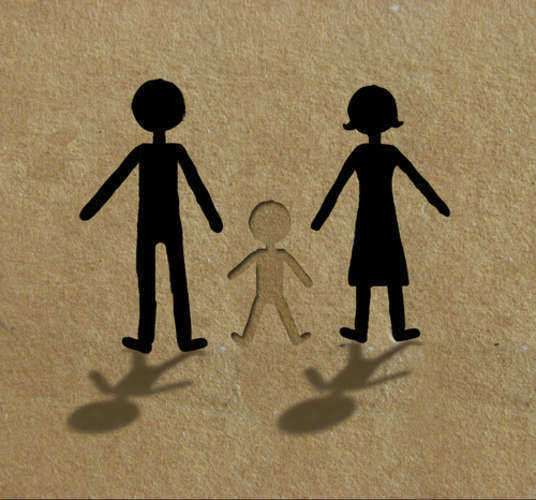Child Custody Laws in Nevada
NEVADA CHILD CUSTODY LAWS & REGULATIONS UPDATE 2023
A DECADE OF CHANGE: AN OVERVIEW OF NEVADA'S CHILD CUSTODY LAWS AND REGULATIONS TIMELINE (2013-2023)
Nevada's child custody laws have evolved over the last decade to ensure the well-being of children and the fair treatment of parents during custody proceedings. The state's commitment to providing stable and nurturing environments for children is evident in the following key updates from 2013 to 2023:
2013 - Joint Custody Preference:
- Nevada emphasizes joint custody as the preferred arrangement, encouraging ongoing involvement of both parents.

2014 - Child's Best Interests:
- Implementation of guidelines that prioritize the child's best interests in custody determinations.
2015 - Parenting Plans Requirement:
- Introduction of mandatory parenting plans outlining custody, visitation, and decision-making responsibilities.
2016 - Relocation Guidelines:
- Establishment of guidelines for parents seeking to relocate with their child, considering the impact on the child's life.
2017 - Domestic Violence Consideration:
- Nevada strengthens protections for children by considering any history of domestic violence in custody decisions.
2018 - Mediation Promotion:
- Emphasis on mediation to resolve custody disputes amicably and reduce adversarial proceedings.
2019 - Child's Wishes Acknowledged:
- Nevada starts recognizing the child's preferences as one of many factors in custody determinations.
2020 - Grandparent Visitation Rights:
- Enhancement of grandparent visitation rights when it's in the child's best interests.
2021 - Substance Abuse Evaluation:
- Introduction of evaluations to address substance abuse issues that may affect a parent's fitness for custody.
2022 - Mental Health Assessment:
- Consideration of mental health evaluations when relevant to parental fitness and the child's well-being.
2023 - Equal Treatment of Parents:
- Nevada ensures equal consideration of both parents' rights and responsibilities in custody cases.
These changes underscore Nevada's dedication to providing a supportive and nurturing environment for children while ensuring fairness for parents involved in custody disputes.
Guide to Child Custody Laws in Nevada
Nevada parents who are in a dispute over the custody of their children need to understand child custody laws in Nevada. The state's laws differ in a few key respects from those of most other states, and parents who understand these laws will better navigate the court system. This guide will explain how Nevada handles child custody, and how child custody laws in Nevada will impact your case. When you have finished reading this guide, you will better understand some of the terminology used in child custody cases and be better prepared to do further research.
Parenting Plans and Mediation
The legal standard used to determine child custody matters in Nevada is the best interest of the child. Child custody laws in Nevada assume that children are better served when their parents are communicating and agreeing about custody arrangements. To that end, the state allows parents to draft their own parenting plan for the court to approve.
If you are having a difficult time negotiating one or more issues in your parenting plan, child custody laws in Nevada allow the court to send you and the child's other parent to mediation, without a lawyer. This process is much more informal than courtroom proceedings, and you can generally save a good deal of money by working out a parenting plan in mediation instead of taking your case to a hearing. If you and your spouse can find a point of agreement with the help of the mediator, the mediator will draw up a parenting plan to be presented to the judge.
Legal Custody
When people refer to child custody, they are often conflating two things: legal custody and physical custody. The first kind of custody, legal custody, refers to which parent is allowed to make major decisions for the child, including choices about religious instruction, schooling, and healthcare. Child custody laws in Nevada presume that joint legal custody is in the best interests of the child unless one parent is somehow unfit.
Joint legal custody means that both parents must work together to come to decisions about the upbringing of their child. Child custody laws in Nevada allow for a parent to seek sole legal custody if they can show evidence that joint custody would not be in the best interest of the child.
Physical Custody
The second kind of custody is called physical custody, and it refers simply to where the child lives. Some people believe that joint legal custody automatically means having joint physical custody, but child custody laws in Nevada usually result in a judge awarding primary physical custody to one parent only. In some cases, particularly if the parents live close together and seem capable of dividing the child's time equally, joint physical custody will also be ordered.
Visitation
Non-custodial parents are entitled by child custody laws in Nevada to visitation rights. This visitation is generally unsupervised and may take the form of overnight trips or even a few weeks during school breaks. If the non-custodal parent presents a threat to the child's health or safety, this visitation may be supervised by a third party approved by the court.